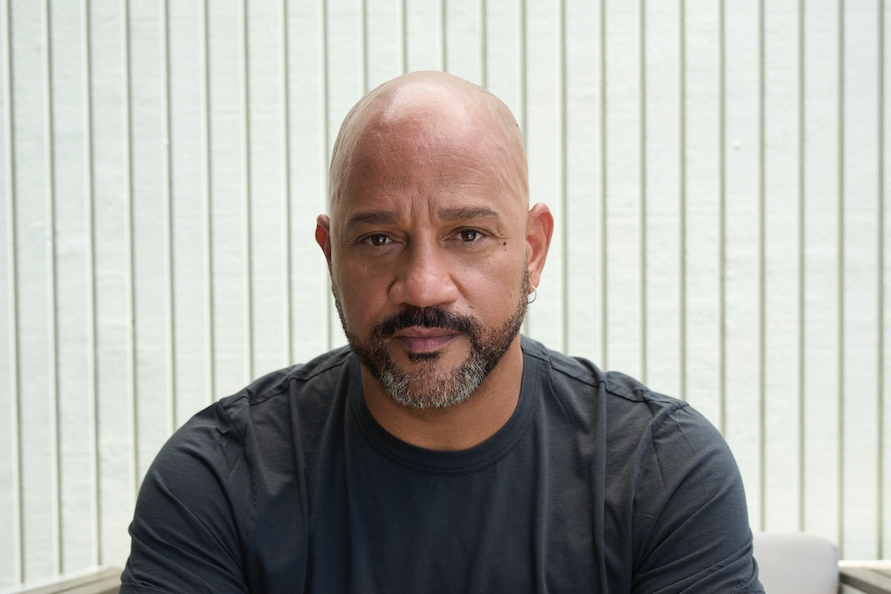Director Allen Hughes is nominated for a Grammy Award in the Best Music Film category for Dear Mama, a five-part docuseries that examines the relationship between Tupac Shakur and his mother, Afeni Shakur. The series, which premiered on FX in April 2023, does a deep dive into Afeni’s turbulent life as both a Black Panther and struggling drug addict as well as Tupac’s rise to rap royalty. Hughes had a complicated friendship with ‘Pac but has come to a place of peace with it, even though he has some regrets.
In 1991, Tupac recruited Hughes and twin brother Albert to direct his first video, “Brenda’s Got A Baby,” when they were just teenagers. The provocative visual, shot in black-and-white, tells the tragic tale of a teen mother who falls victim to the broken system. As their collaborative relationship continued to develop, it would ultimately come to a tumultuous end when Tupac assaulted the brothers during a video shoot. ‘Pac was upset they kicked him out of their debut film, Menace II Society, and sought revenge with a merciless beating. The brothers took Tupac to court and he wound up serving 15 days in jail for the attack. That was the last time Allen Hughes really spoke to ‘Pac. Looking back, he knows he could’ve handled the situation differently.
“I would have gone to see him in prison [Shakur served 11 months on sexual abuse charges but was released in 1995 pending an appeal of his conviction],” Hughes said in an interview last month. “Because, funnily enough, I would have had a captive audience. We were so young—I just think it would have been the mature thing to do. I wish I would have gone and seen him. That’s the big regret.”
But, in a way, Dear Mama feels like an amends. Through interviews and the series itself, Hughes was able to articulate just how special Tupac was to not only him but also the world. Speaking to AllHipHop, Hughes praises the late rap icon for exploring subjects most “gangsta” rappers wouldn’t touch.
“‘Brenda’s Got A Baby’ came out when he was 20,” Hughes says. “He wrote it when he was 18. To this day, point me to one male rapper who ever consistently wrote female centric songs. When you look at ‘Brenda’s Got A Baby,’ what makes it unique is it’s one long verse. It’s storytelling at its finest.
“He’s singular in that he’s got like eight to 10 songs that embody a female perspective, experience, disposition, heart or mind—and that’s the thing he had. If you knew him behind closed doors, you’d see other sides of him that were almost demure and soft, and they’re always very sweet. He was really in touch with his feminine side. Even when we start talking about toxic masculinity and maybe the trap he may have fell into later, he wasn’t afraid to cry, he wasn’t afraid to be sensitive or write poetry. And by the way, he was always reading. He always had a book in his hand. To Hip-Hop at the time, that was like kryptonite ’cause who reads?”
One of Tupac’s most famous songs is undeniably “Dear Mama,” which appeared on his third album, 1995’s Me Against The World. As the title suggests, it’s a poignant—and at times painful—ode to Afeni that truly captures the complicated nuances of their mother-son dynamic. Dear Mama illustrates a similar narrative, albeit in a different way. Like Hughes pointed out, “Brenda’s Got A Baby” and “Dear Mama” were just two of the female-centric songs Tupac wrote in his lifetime. Others include “Shorty Wanna Be A Thug” and “Keep Ya Head Up.”
Tupac was murdered in 1996 at a mere 25 years old and still had so much he could’ve accomplished. Hughes imagines he’d continue being a leader and, as he matured, found his footing as a fearless revolutionary.
“We’re missing a moral compass and virtues,” Hughes says of the music industry. “He obviously would’ve been a community leader if he got a harness on his emotions. Halfway through making this—and I was 48 when I started—I almost started crying. I’m like, ‘Damn, if he only just made it out of his 20s.’ He would have seen the emotional thing goes down a little bit, and you’re able to see the forest for the trees a little bit better.
“Then once you get out your 30s and you get to 40s, you get more comfortable in your skin. So I believe he would have been a leader of men and women in the in the community and of the culture, a thought leader. I think he would have been a moral leader, even though he fell victim to some of the things that he talked about not doing. Look now in our culture. Where are the leaders? You’ve got these millions of followers, but where’s your voice?”
Tupac, Hughes believes, wouldn’t have allowed Hip-Hop to get to this point. He adds, “His friends always say if he were here right now, he’d be an a###### [laughs]. But at least he’d be a rebel with a cause.”
The 66th Annual Grammy Awards take place at the Crypto.com Arena in Los Angeles on Sunday (February 4). Check back with AllHipHop soon for Part II of the Allen Hughes interview.
